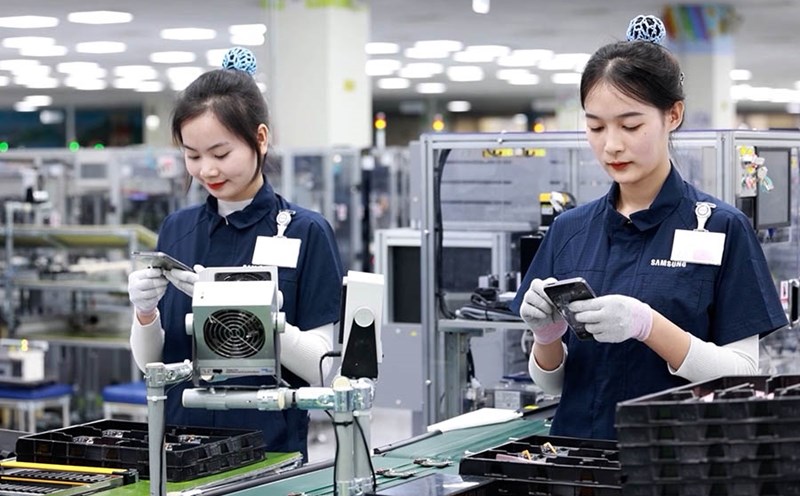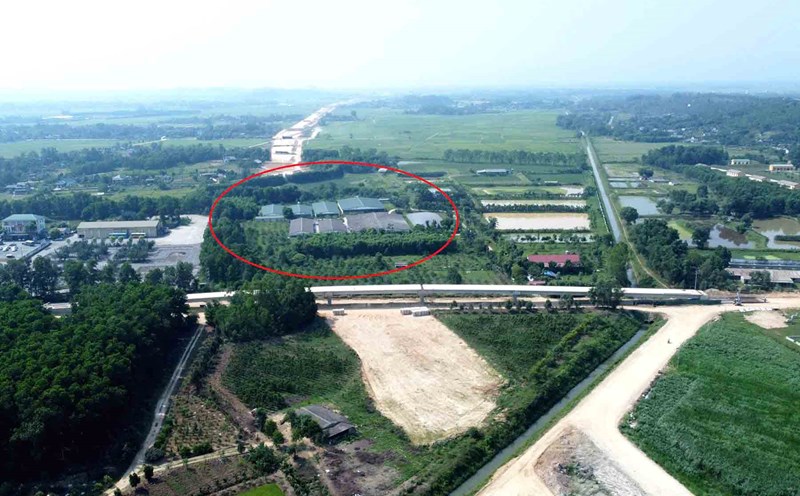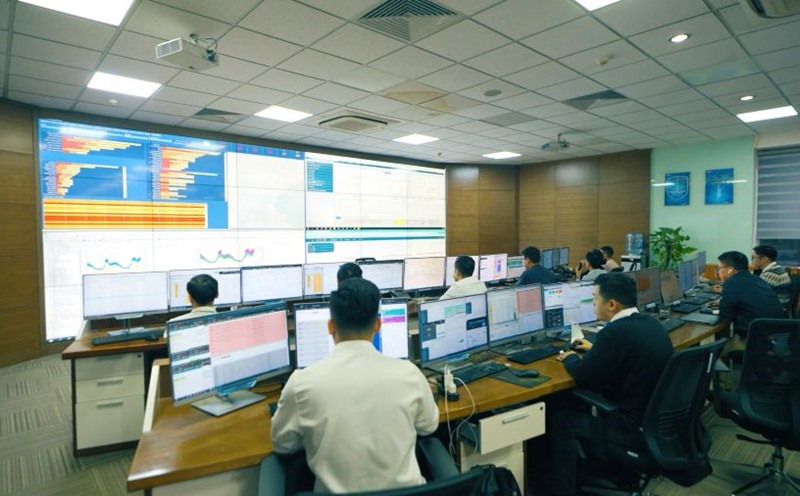Removing the bottleneck of digital human resource shortage
Speaking to Lao Dong Newspaper reporter, Mr. Le Quang Trung - former Deputy Director in charge of the Department of Employment - said that developing digital human resources is a decisive factor in the success of building a digital economy in Vietnam today.
Mr. Trung cited the figures, according to the Statistics Office, the rate of trained workers with degrees and certificates in the second quarter of 2025 nationwide is 29.1%; the demand for 700,000 IT human resources is only about 530,000 people by the end of 2024; the rate of IT human resources is estimated at 1.1% out of a total of 51 million workers nationwide...
Currently, Vietnam is lacking highly qualified human resources in science, engineering, technology and toan (STEM). This shortage does not meet the working requirements of technology corporations - this is also a major bottleneck that needs to be resolved" - Mr. Trung emphasized.
To have human resources to meet the needs of the digital economy, Mr. Trung proposed a number of solutions to improve the quality of digital human resource training.
Develop an education and training strategy to directly serve the development of the digital economy. In particular, the Ministry of Education and Training coordinates with relevant ministries and branches to forecast market demand, plan training targets; build digital training programs for students from high school; organize joint programs between schools and businesses so that students can practice, allow businesses to participate in building training programs; strengthen international linkages...
Building a working culture to create standards for digital human resources in the era of technology 4.0.
Innovation in education and training management on the basis of supplementing and perfecting the legal system in the direction of clearly defining functions, tasks, and powers, associated with the responsibility of training institutions; innovating the work of recruiting, using, training, and fostering lecturers so that lecturers have enough capacity to work in a highly creative and responsible environment.
At the policy level, incentives such as tax exemptions for training institutions, research funding, support for job conversion and building a public-private partnership mechanism will create a favorable environment for the development of digital human resources.
Focus on training 3 core competency groups
Ms. Nguyen Thanh Huong - Head of Human Resources for the whole country, Manpower Vietnam Company - said that currently, green growth faces many barriers in terms of human resources, in which awareness and understanding of green growth are still limited. Many workers are not fully aware of the importance and long-term benefits of green growth for themselves, businesses, and society and do not clearly see their role in this transformation process.
In particular, according to Ms. Nguyen Thanh Huong, the lack of understanding and attention right from the leadership level - those who should have led the green transformation process - has caused training programs and skills improvement (reskill/upskill) to be almost left open. In addition, there are still old and distorted or very limited views about green jobs - such as thinking that these are jobs that are environmentally-related, hard-working, dangerous, and have unattractive incomes. These prejudices limit the need to learn about and access green job opportunities.
Ms. Nguyen Thanh Huong believes that it is necessary to focus on training in three core groups of abilities: Digital skills, green skills and soft skills combined with innovative thinking.
Accordingly, with the digital economy, workers not only need to know how to use technology but also have a digital mindset in the work process and making decisions. mastering familiar digital tools such as Microsoft Office, applications, management systems and communication via digital platforms is a basic requirement. In particular, they need to have a correct understanding of ethical issues, security, understand the operating mechanisms of digital platforms and tools to avoid becoming criminals or fraud victims, protect themselves and society.
For green growth, workers not only need to be equipped with basic knowledge about sustainable development, circular economy, energy saving, emission reduction, and effective resource management, but also need to be educated about why these are necessary. Changing your mindset - from considering it the responsibility of others to realizing that each individual can and needs to contribute - is a key factor. This process needs to take place in parallel with improving professional capacity through improving and retraining skills (reskill and upskill), so that workers can both understand correctly and do correctly in practice" - Ms. Nguyen Thanh Huong said.
According to Ms. Nguyen Thanh Huong, most current business leaders believe that core human skills still play an important role and are difficult to replace. Therefore, soft skills such as communication, teamwork, problem solving, critical thinking, creativity and adaptability must be cultivated.
In particular, innovative thinking needs to be considered a fundamental ability, demonstrated in proactive improvement from the smallest actions, from working style to decision making.

Ms. Thai Thu Xuong - Permanent Vice President of the Vietnam General Confederation of Labor: "Connecting policies for workers to access fairness"
The Vietnam General Confederation of Labor will increase support for grassroots trade unions to promote training in new skills, digital skills, green skills; expand the link between trade unions - enterprises - vocational training institutions and continue to act as a policy bridge for workers to have fair access to development opportunities in the new economic model.
I believe that investing in workers today is the greatest way to save for the future, not only for businesses but also for the whole society. We cannot talk about green growth or digital transformation, if we do not simultaneously change the way we perceive, treat and invest in human resources" - Ms. Thai Thu Xuong said. Bao Han (song)
Ms. Nguyen Khanh Chi - Permanent Vice President of the Vietnam Banking Trade Union: "Building a creative workforce, mastering science and technology"
As an organization representing the legitimate and legal rights and interests of workers, the Trade Union has a particularly important position to become a bridge between employers and workers in training and improving their qualifications. Recognizing that importance, the Vietnam Bank Trade Union not only passively receives training programs from experts but also proactively proposes, develops and coordinates the implementation of training contents close to the work reality and development strategy of each unit. This role becomes more important than ever, especially when digital transformation and ESG (Environment - Society - Governance) have become major policies of the Party and the Government.
To carry out this role, the Trade Union launched an emulation movement in the entire industry to raise awareness, sense of responsibility, self-reliance, self-strengthening and patriotism of union members and workers. The goal is to build a creative workforce, mastering science, technology and digital transformation, contributing to improving productivity, quality and work efficiency. Bao Han (song)
According to the Statistics Office, the labor force aged 15 and over nationwide in the second quarter of 2025 is estimated at 53.1 million people, an increase of 169,800 people compared to the previous quarter and an increase of 553,200 people compared to the same period last year. The rate of trained workers with degrees and certificates in the second quarter of 2025 was 29.1%, an increase of 0.3 percentage points compared to the previous quarter and an increase of 1.0 percentage points compared to the same period last year. In the first 6 months of 2025, the rate of trained workers with degrees and certificates was 29.0%, an increase of 1.0 percentage points over the same period last year. Quynh Chi
Mr. Lai Hoang Dung - Chairman of the Trade Union of Samsung Electronics Vietnam Co., Ltd. (SEV) - said that in order for the human resources working at the company to meet the requirements in the digital transformation process, the company is applying a recruitment - training - use - retention model.
Accordingly, SEV has built a strict recruitment process, not only evaluating basic knowledge but also attaching great importance to the ability to learn, adapt and think about techniques. The company cooperates closely with universities and colleges to access quality labor from the beginning. Employees are trained from basic to advanced, with training courses on soft skills, foreign languages, management skills; focus on digital transformation training: Use digital platforms in production management, data analysis, robot operation, automation systems.
Next, SEV effectively uses human resources through appropriate work assignments.
According to Mr. Lai Hoang Dung, SEV actively implements green production solutions (energy saving, water saving, emission reduction, electronic waste management) and trains all employees in environmental sustainability awareness and skills.











